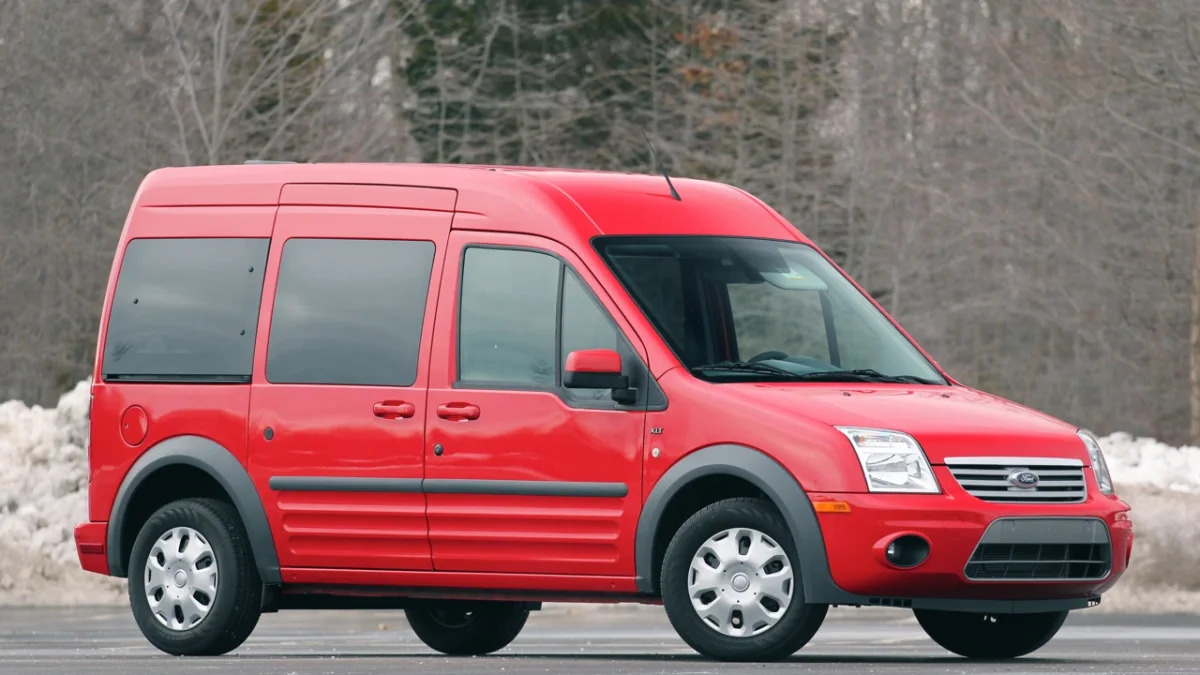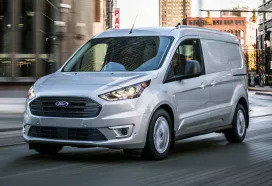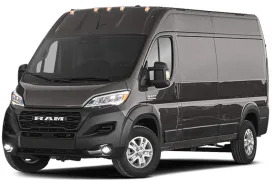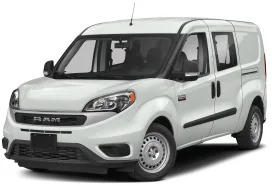Ford is in a bit of a pickle for importing and selling Turkey-built Transit Connect cargo vans as passenger vehicles in the US, then converting them to commercial-vehicle specification stateside in an effort to bypass a 25-percent tax imposed on vehicles imported for commercial use. Automakers are required to pay a 2.5-percent tax on imported passenger vehicles.
The Blue Oval got into trouble for this in a January ruling in which U.S. Customs and Border Protection officials asked Ford to stop the practice of importing the Transit Connect vehicles with passenger seats, then removing and shredding them. Now Automotive News reports that Ford is appealing the ruling. The 25-percent "Chicken Tax," as the tariff is often called, is 50 years old and was enacted as a response to a German tariff on chickens.
Like Ford, Mercede-Benz bypasses the higher tariff, but it does so in a different manner. According to Mercedes Product and Technology Communications Manager Christian Bokich, it partially disassembles Sprinter cargo vans before shipping them to the US, which includes removing the front axle, the engine (which is stamped with the vehicle identification number (VIN) and shipped separately) and "other pieces," then rebuilds them at a plant in South Carolina.
But the ruling against Ford's strategy states that it "serves no manufacturing or commercial purpose" and is there to "manipulate the tariff schedule," Automotive News reports. As Ford's appeal goes through, it is importing the Transit Connect and paying the higher tax, hoping for a favorable outcome and planning to build the next-generation Transit Connect, which it plans to launch before the end of the year, in Spain.
At the same time, Ford is lobbying the government to keep Japanese automakers paying the 25-percent tax on commercial vehicles, but that's because other non-tariff economic barriers make it extremely difficult to import vehicles to Japan.
UPDATE: An earlier version of this article incorrectly stated: "Like Ford, Chrysler bypasses the higher tariff, but it does so in a different manner. It partially disassembles Sprinter cargo vans before shipping them to the US, then rebuilds them at a plant in South Carolina." Though Chrysler previously engaged in this practice when it was part of DaimlerChrysler, the Fiat-owned automaker no longer sells Sprinter cargo vans. The text has since been corrected.
The Blue Oval got into trouble for this in a January ruling in which U.S. Customs and Border Protection officials asked Ford to stop the practice of importing the Transit Connect vehicles with passenger seats, then removing and shredding them. Now Automotive News reports that Ford is appealing the ruling. The 25-percent "Chicken Tax," as the tariff is often called, is 50 years old and was enacted as a response to a German tariff on chickens.
Like Ford, Mercede-Benz bypasses the higher tariff, but it does so in a different manner. According to Mercedes Product and Technology Communications Manager Christian Bokich, it partially disassembles Sprinter cargo vans before shipping them to the US, which includes removing the front axle, the engine (which is stamped with the vehicle identification number (VIN) and shipped separately) and "other pieces," then rebuilds them at a plant in South Carolina.
But the ruling against Ford's strategy states that it "serves no manufacturing or commercial purpose" and is there to "manipulate the tariff schedule," Automotive News reports. As Ford's appeal goes through, it is importing the Transit Connect and paying the higher tax, hoping for a favorable outcome and planning to build the next-generation Transit Connect, which it plans to launch before the end of the year, in Spain.
At the same time, Ford is lobbying the government to keep Japanese automakers paying the 25-percent tax on commercial vehicles, but that's because other non-tariff economic barriers make it extremely difficult to import vehicles to Japan.
UPDATE: An earlier version of this article incorrectly stated: "Like Ford, Chrysler bypasses the higher tariff, but it does so in a different manner. It partially disassembles Sprinter cargo vans before shipping them to the US, then rebuilds them at a plant in South Carolina." Though Chrysler previously engaged in this practice when it was part of DaimlerChrysler, the Fiat-owned automaker no longer sells Sprinter cargo vans. The text has since been corrected.













Sign in to post
Please sign in to leave a comment.
Continue